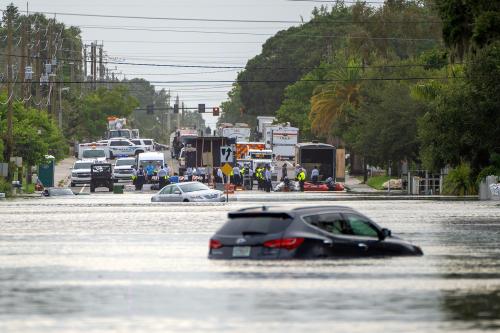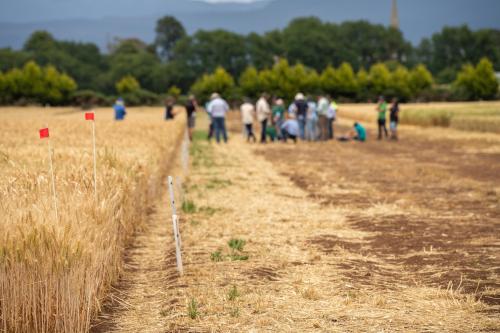On November 23, 2013 the United Nations Climate Change Conference, the 19th Conference of Parties (COP19), concluded in Warsaw. One of the significant outcomes of the conference was an agreement on a framework to support developing nations reduce greenhouse gas emissions from deforestation and forest degradation (REDD+). This framework, called the Warsaw Framework for REDD+, is backed by combined pledges of $280 million in financing from the United States, Norway and United Kingdom. Support of the framework is particularly important to African countries that are experiencing rapid and serious deforestation.
REDD+ is one of the instruments defined by the United Nations Framework Convention on Climate Change (UNFCCC) to reduce the emission of greenhouse gases by targeted reductions of deforestation and forest degradation, conversion and enhancement of forest carbon stocks, and improved forest management. Forest lands in Africa are widely cleared and burned to make new settlements, expand agricultural lands, exploit timber and timber products, support rapid urbanization, and spread commercial farming and ranching. Although Africa’s fossil-fuel CO2 emissions are insignificant compared to the rest of the world (only 3.6 percent), the continent’s emissions from deforestation account for about 17 percent of the global total. Given the contribution of deforestation to global warming, Africa can play a vital role in mitigating climate change through the reduction of deforestation.
Scientific evidence shows that forestry and forest-related agricultural practices in Africa can play the triple roles of 1) adaptation to climate change; 2) mitigation of climate change; and 3) poverty reduction. For instance, one study in western Kenya showed that agroforestry practices facilitate carbon sequestration, improve farm productivity, increase household wealth, increase income diversity and provide coping strategies during extreme climate events.
These results imply that the Warsaw Framework for REDD+ has a high potential for Africa if its constituent nations can tackle the challenges associated with its implementation. So far, Africa’s experience with REDD+ has been mixed. Some of the challenges it faces include the absence of national regulations on local property rights on land, governance mechanisms on equitable sharing of carbon payments, and low institutional capacity for REDD+ implementation. Lack of technical skills in emissions accounting, lack of institutional and technical skills to implement national forest inventory (NFI) programs, and an inability to involve community on the designing and implementation of REDD+ projects at the grass root level will also need to be overcome.
Policies that increase the participation of communities in decision-making and local-level technical capacities for effective monitoring, reporting and verifying can reduce the challenges associated with implementation of REDD+ in Africa. Additionally, delineation of property rights, especially on land, can promote the role REDD+ can play in Africa. Moreover, the provision of incentives such as tax reductions or soft loans could encourage the participation of the private sector and enhance mitigation and adaptation efforts to climate change in Africa. The first step should be the designing of appropriate national polices that promote the implantation of REDD+. Moreover, multilateral institutions like the African Development Bank, the World Bank, and international aid agencies should prioritize climate funding on the implementations of REDD+ in Africa. Finally, developed nations like Canada and the European Union should follow the initiatives taken by the United States, Norway and Great Britain in financing REDD+ in Africa.
With the support of international partners, African countries can make important gains in the fight against climate change while making simultaneous strides towards their own development. The Warsaw Framework presents a win-win and will hopefully lead to further gains moving towards COP20 in Lima and beyond.
The Brookings Institution is committed to quality, independence, and impact.
We are supported by a diverse array of funders. In line with our values and policies, each Brookings publication represents the sole views of its author(s).



Commentary
The Warsaw Framework for Reducing Emissions from Deforestation and Forest Degradation (REDD+): What It Means for Africa
November 27, 2013